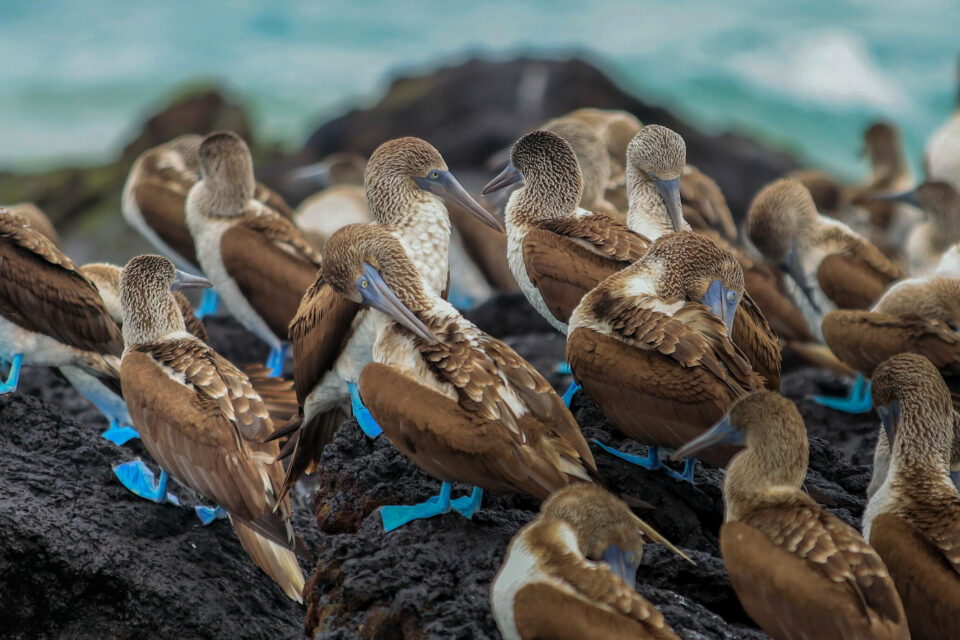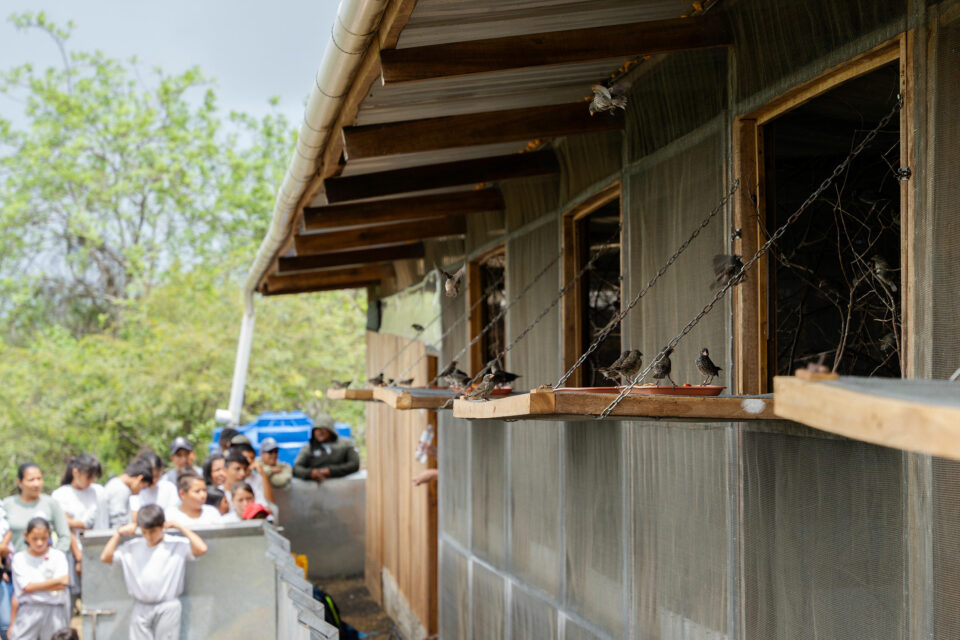

Double your donation to rewild Galapagos with the Big Give
We're taking part in the Big Give Green Match Fund campaign, raising money to rewild the Galapagos Islands. For one week only, every donation you make will be doubled, up to an amazing £10,000!
Invasive species, pollution, plastic waste and disease threaten the survival of iconic species like Galapagos giant tortoises and Darwin’s finches. We urgently need to rewild the Galapagos Islands so that wildlife thrives alongside people, reducing the human footprint and boosting biodiversity.
With your help, we have a unique chance to raise an extra £10,000 for Galapagos from the Big Give Green Match Fund. For every £1 you donate, they will also give £1, up to an incredible £10,000.
Update: Our Big Give campaign has now closed, and we raised over £22,000 – an amazing result!
We are now aiming for a stretch target of £30,000 – donate now via our website and help us rewild Galapagos.
Wildlife is under severe pressure in Galapagos. Over 1,500 invasive species have been introduced to the Islands, with devastating impacts on birds, giant tortoises and marine iguanas that are found nowhere else on Earth. What’s more, pollution is an increasing threat: an alarming recent study showed that Galapagos giant tortoises are eating litter, including plastic, metal and glass.
At GCT, we are dedicated to safeguarding the future of the Galapagos Islands, working together with our partners and the local community on populated islands such as Santa Cruz and Floreana. From eradicating parasitic flies and clearing dense thickets of invasive hill raspberry, to rewilding unproductive agricultural land and bringing back iconic species such as the little vermilion flycatcher, our island restoration work will repair damaged ecosystems and provide benefits for both people and nature.

Thanks to the work of organisations such as Galapagos Conservation Trust, and their local partners, the tortoises are fighting back! This is the power of rewilding Galapagos, and with your help, we can harness that power to protect these precious islands for many tortoise-lifetimes to come.
Four ways that you can help safeguard the Galapagos Islands for future generations
Inspire the conservationists of the future
Young people in Galapagos have few opportunities to see the wildlife enjoyed by tourists and develop a connection with nature, since many areas are too expensive to visit.
£25 could help support a rewilding workshop for local young people and build valuable conservation skills.

Protect giant tortoises from pollution
The Tortoise Protectors programme engages local young people in Galapagos to collect litter and help scientists identify tortoises that need to be relocated from urban areas to safer locations.
£50 could help fund the Young Tortoise Protectors to carry out monitoring surveys where tortoise habitats overlap with main roads.
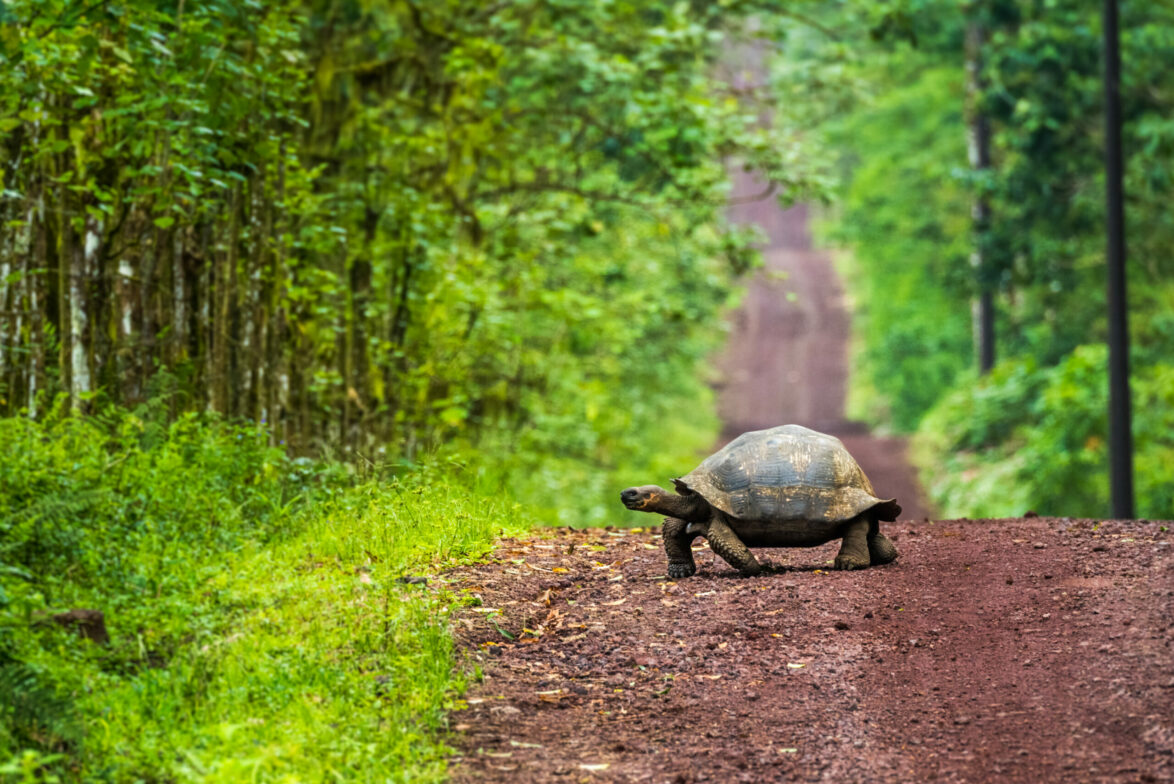
Allow native plants to flourish
The hill raspberry is one of the most damaging invasive plants in Galapagos and threatens the survival of the endemic Scalesia forest, a vital habitat for birds such as the little vermilion flycatcher.
£75 could fund a day of clearing invasive hill raspberry plants, enabling local plants and wildlife to return.
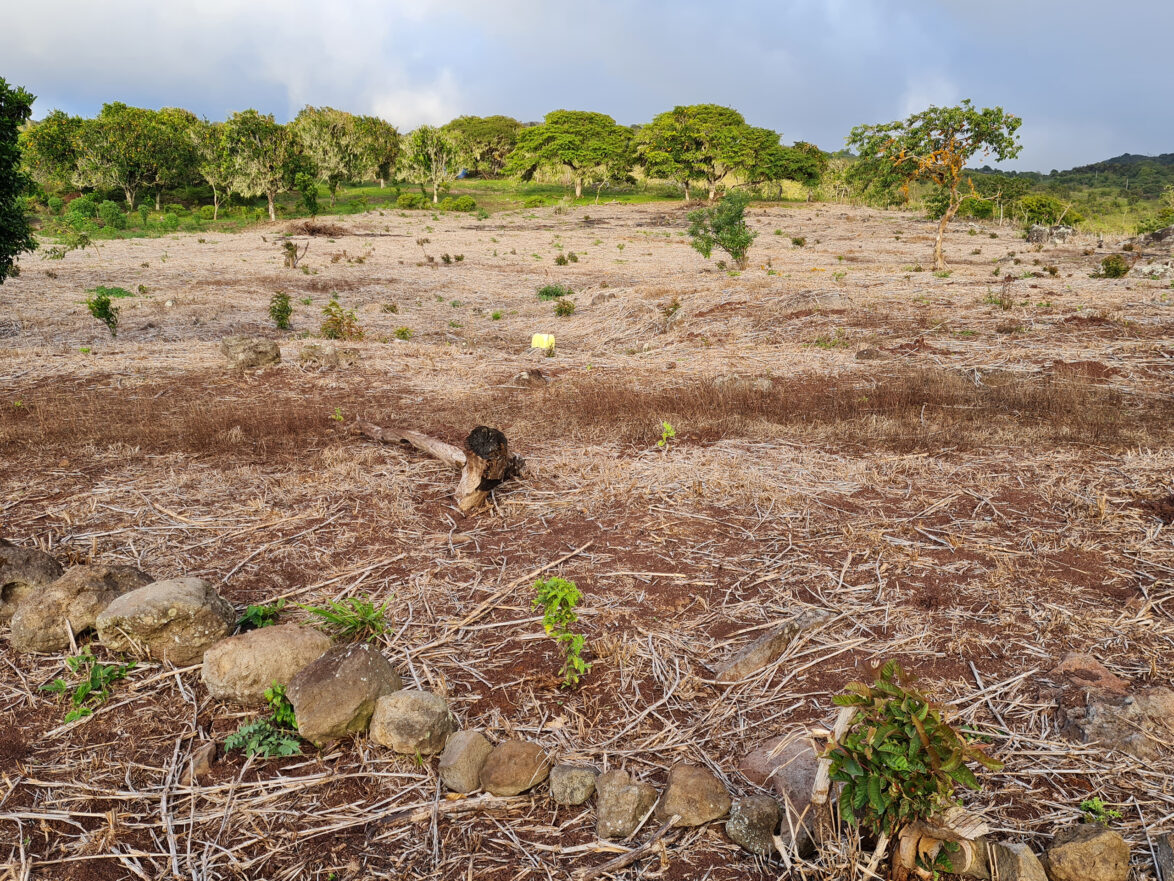
Bring Darwin’s finches back to Floreana
Four species of Darwin’s finch were driven to extinction on Floreana island by rats and other invasive species. Now that the rat eradication has been carried out, we are preparing to bring these missing species back.
£300 could fund assessments to ensure that returning birds are healthy and no diseases are introduced.
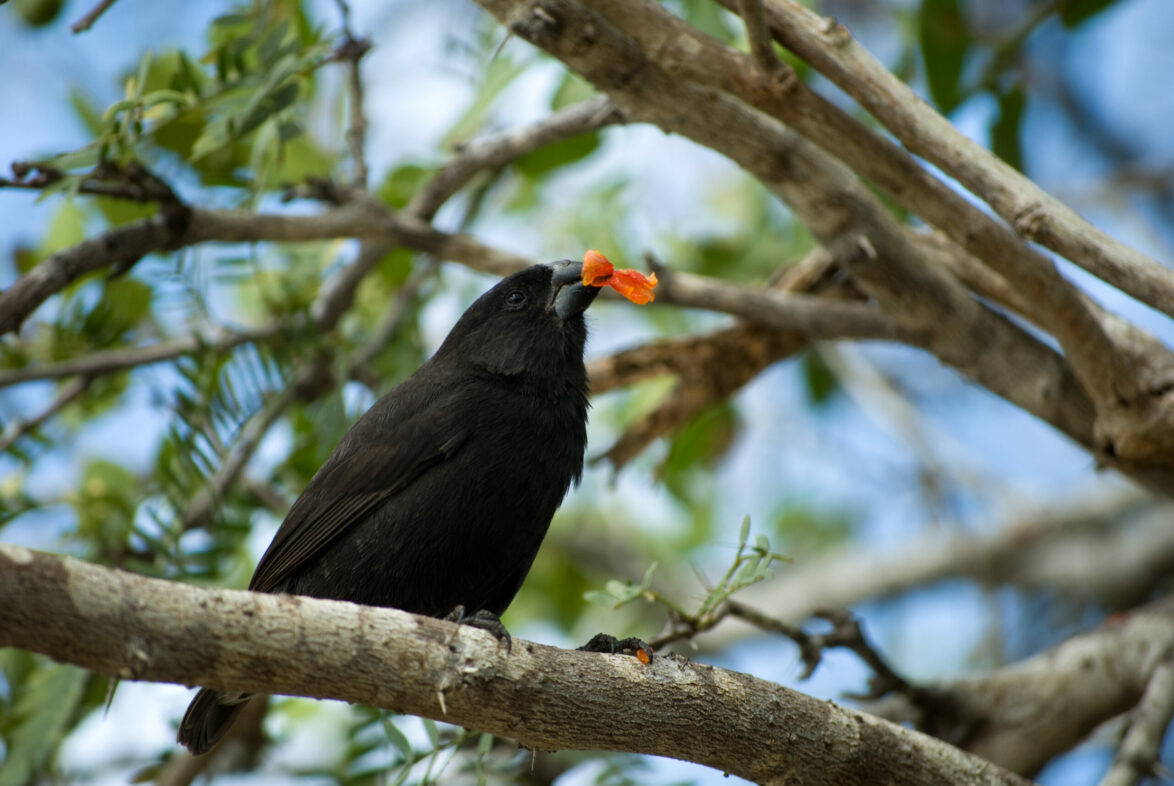
PS. Very soon, the Floreana giant tortoise – an animal the world thought was extinct – will be reintroduced to Floreana island. This is just one of 12 species set to return over the next few years, following more than a decade of preparations funded by people like you.

What is Big Give?
Big Give brings together philanthropists, foundations and businesses with charities and their supporters, matching what the public gives and doubling the total donation that the charity receives. They have chosen to support GCT by promising to match donations up to a maximum of £10,000. Together we could raise £20,000, money that will make a real difference to the wildlife of Galapagos.
Will you help us rewild the Galapagos Islands?
We need your help to rewild the Galapagos Islands so that wildlife thrives alongside people, reducing the human footprint and boosting biodiversity.
Related articles

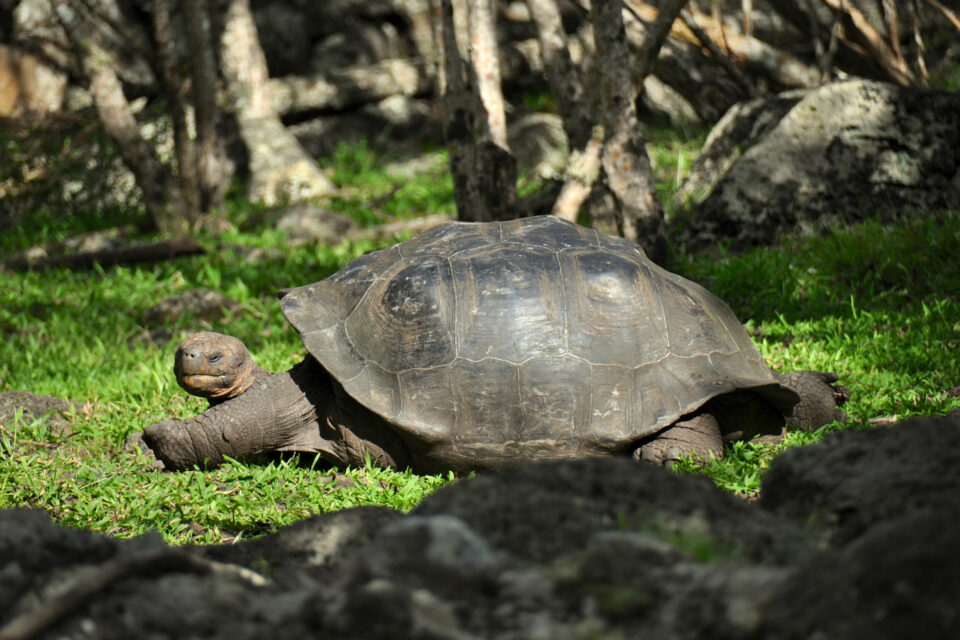
The return of the Floreana giant tortoise
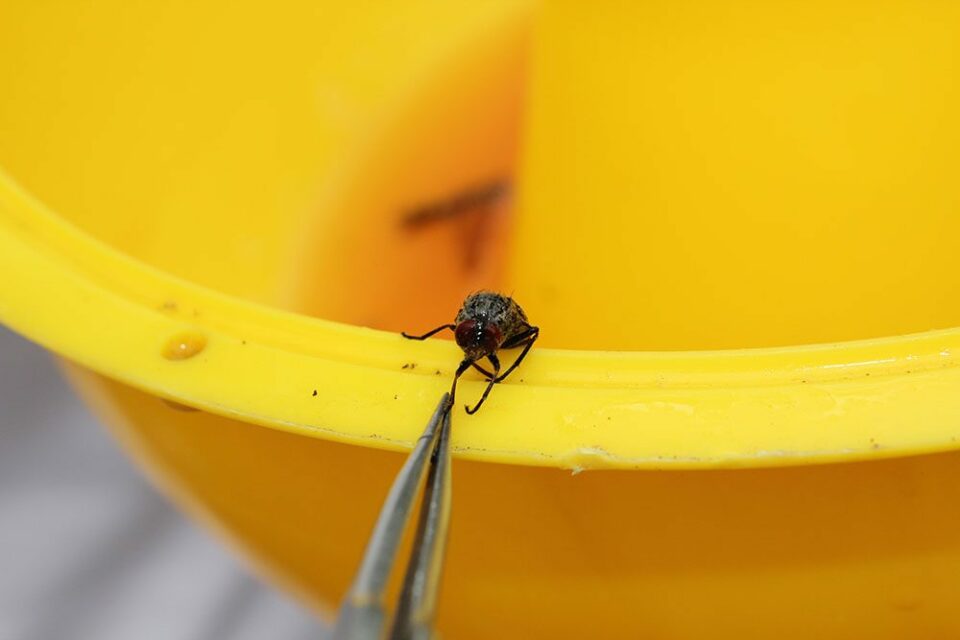
How do we solve the problem of invasive species in Galapagos?
